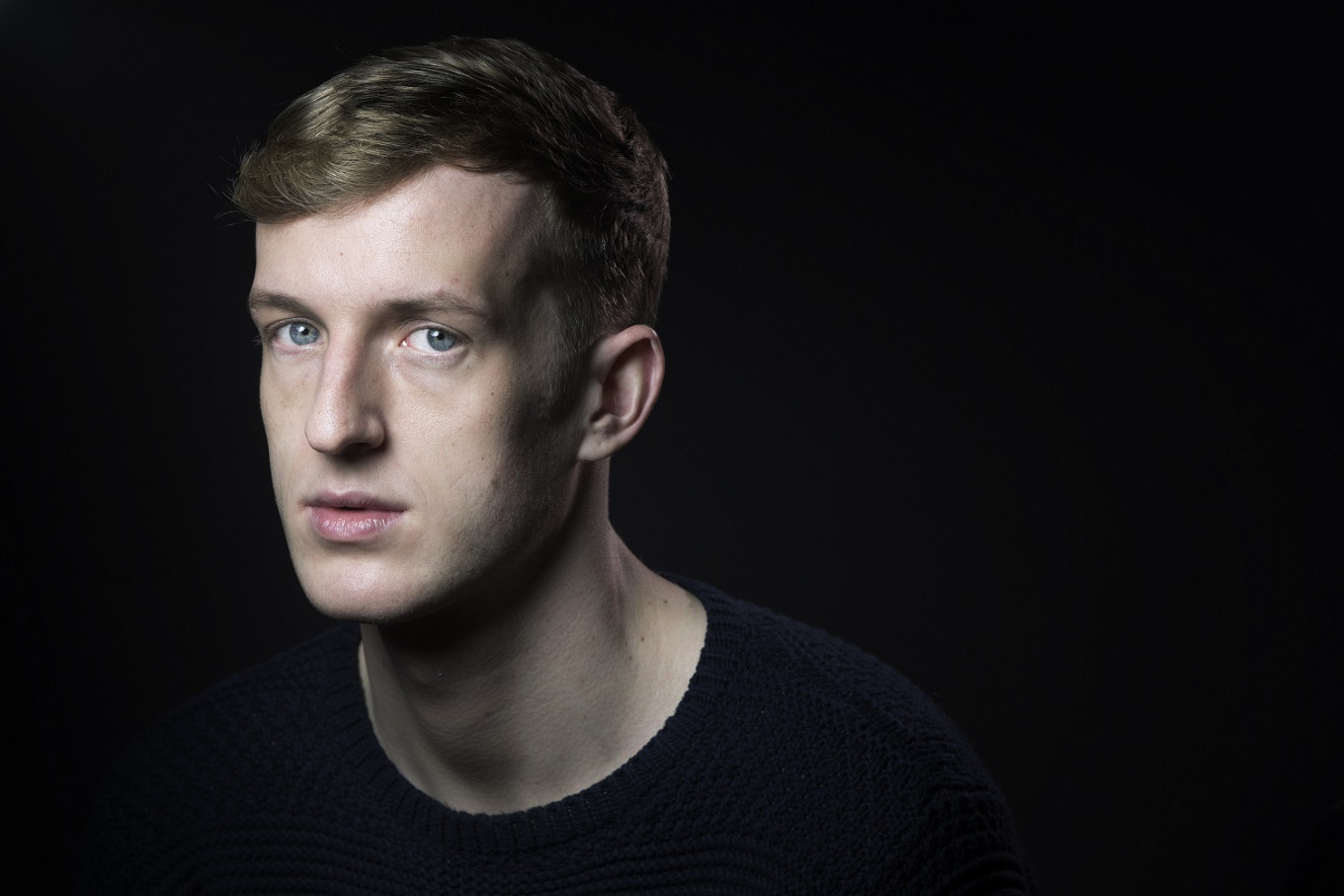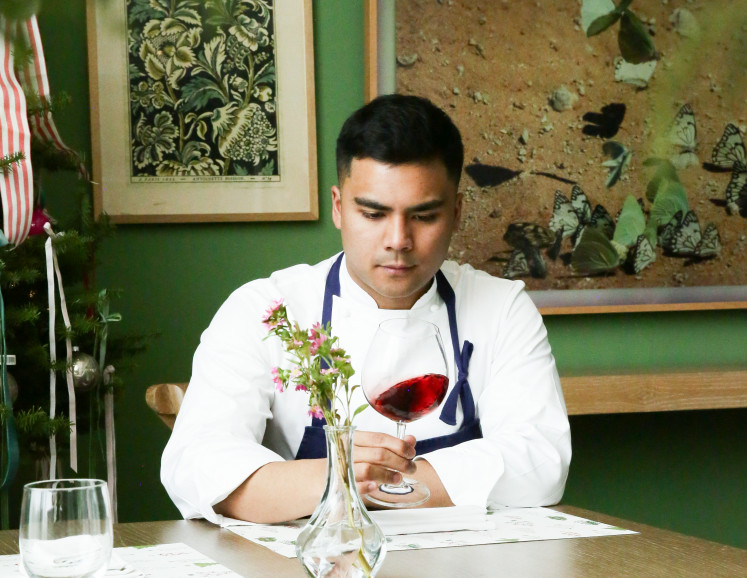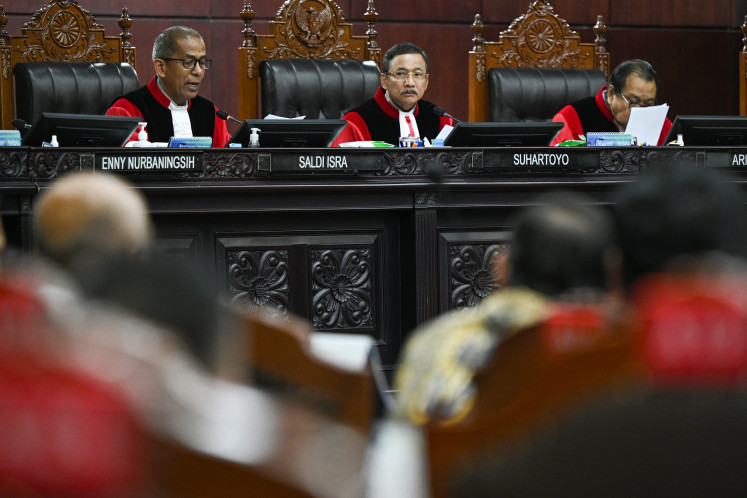Popular Reads
Top Results
Can't find what you're looking for?
View all search resultsPopular Reads
Top Results
Can't find what you're looking for?
View all search resultsFrench writer relives his rape in harrowing Paris play
Not an easy watch for the audience, it cannot have been much fun for the acclaimed young French novelist who has mined his life for his art since his breakthrough memoir, "The End of Eddy", in 2014.
Change text size
Gift Premium Articles
to Anyone
For the past week, Edouard Louis has been seeing his rape re-enacted on a Paris stage in front of more than 400 people.
Not an easy watch for the audience, it cannot have been much fun for the acclaimed young French novelist who has mined his life for his art since his breakthrough memoir, "The End of Eddy", in 2014.
That account of growing up gay in a dirt poor family in a rustbelt village in northern France struck a chord across the world for the ferocious honesty with which he addressed racism, poverty and despair in communities ravaged by neo-liberal economics that were turning to far-right populists.
Louis brought the same searing eye to "History of Violence", his 2016 book about being raped and almost killed in his Paris flat by a man he had met in the street one Christmas Eve.
But the 27-year-old insisted it is important to show the violence of what happened when a young Algerian man pulled a gun and tried to strangle him.
"It is not easy to carry something which you did not choose," he told AFP as a stage adaptation of the book opened in the French capital.
"Maybe the theater can be a place where one can put these struggles in their place."
It is not the first time the widely-translated bestseller has been staged. But it is the first time Louis has been directly involved in the production.
Taking back his story
He was tempted to take part by Thomas Ostermeier, the German theatrical wizard who heads Berlin's Schaubuehne, and whose work Louis admires.
Ostermeier "has always used his theater to denounce social mechanisms" through which things are filtered, said the writer, who himself used the book to explore not just sexual violence, but racism and homophobia.
Louis said he was driven to write the book to "reclaim" his own story after "not recognizing my own experiences when I read the police report."
In the book, Louis chose to recount the attack through his sister, with her telling her husband what happened.
The play, however, explores the crime through the words of the victim, his family, the police and the attacker.
It opens with the Louis figure on stage like an extra, watching as the others talk about what has happened to him.
Read also: French publisher pulls books by writer accused of underage rape
"As soon as you tell your story, particularly when it's about sexual violence, everybody creates their own version of it," Louis told AFP.
"You become the least important figure in your own story," he said, between those who refuse to believe you and those with their own axes to grind.
"In your shoes, I would have...," a policewoman says at one point in the play.
For weeks on end, the writer reworked the script, adding dialogue and keeping an eye on how the piece developed.
"I said to the four actors: 'There is nothing I want more than for you to take over my story.'"
However, Louis walked away from the most difficult scene, the rape itself, which Ostermeier wanted to make as "hyper realist" as possible.
It is so close to the bone, in fact, that some people in the US could not bear to watch and walked out of the play.
Protest is an art
"The theater is a place where things should be shaken up," Louis insisted. "If it is just bourgeois entertainment, that doesn't interest me at all," added the writer and sociologist.
Louis said the play had helped some people talk about the sexual violence they had suffered.
"When I say 'I', I am encouraging other people to say the same" and tell their stories, said Louis, who acknowledges his own debt to Annie Ernaux, a leading figure of the French "autofiction" genre (or fiction of the self), and his friend, the sociologist and philosopher, Didier Eribon.
Louis -- who is now writing his fourth novel -- is also proud of his activism, and has been prominent in his support of strikes against French pension reforms and the long-running yellow vest anti-government movement.
"To fight the good fight, you have to do lots of things at the same time. You have to attack at different angles," he told AFP.
Indeed, Ostermeier is adapting another of Louis' books, "Who Killed My Father", about how his father who came to support the French far-right after he was injured in an industrial accident and then forced off benefits and back to work when he was still not fit.
"For me, a protest movement is like a great work of art," the writer said. "It is something which shows you the realities you don't see, but that all of a sudden become visible."
"History of Violence" runs until February 15 at the Theatre des Abbesses in Paris.











